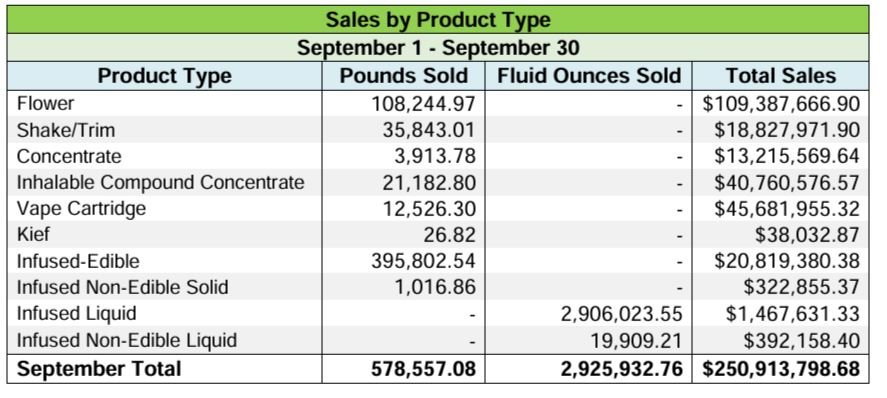An ounce of cannabis flower in September rose by its largest amount month-over-month in two years to $63.16, up 2.22 percent from August’s price of $61.79. The price of an ounce has only risen four times in the last two years, and those mostly came after large drops in price.
But the bad news is prices are expected to drop in October when the outdoor cannabis crop is harvested following past patterns.
September also marked the lowest month of sales since January and February in 2025, however those months have had historically low monthly sales rates compared to other months since pot was legalized.
Oversupply continues to plague the Michigan cannabis market, and it won’t get better in October. Here’s why:
As of Sept. 30 in Michigan, there were nearly 3 million flowering plants ready to be harvested – more than 2 million plants grown for medical use and another 909,000 grown for adult recreational use.
Then there’s the nearly 900,000 pounds of frozen flower for recreational use and over 200,000 pounds of frozen flower for medical use already on hand from previous harvests.
When you take a look at history, cannabis sales peaked in August of 2024 at $295.4 million, and but has declined year-over-year by 10.6 percent between September 2024 and September 2025. During that same time period, the price of an ounce of flower dropped by nearly 20 percent.
What’s more, the sharp drop in sales in September come just months before the marijuana industry will be forced to implement a 24 percent wholesale tax on marijuana, which begins on Jan. 1, 2026.
The tax was the result of negotiations during state budget talks between Democrats and Republicans. But it was pushed hard by Gov. Whitmer, who was elected, in part, by the cannabis community.
Whitmer wants to use the nearly half billion dollars it could raise to fix the roads. But she’s putting in jeopardy the half billion dollars in taxes the Michigan cannabis community has generated in 2024 and may again in 2025. A 40 percent tax on cannabis could drive sales down even more and push consumers back to the black market, which doesn’t pay any taxes.
The legality of the wholesale tax, however, remains in question after the Michigan Cannabis Industry Association, a cannabis trade and lobbying group, challenged the new law.







